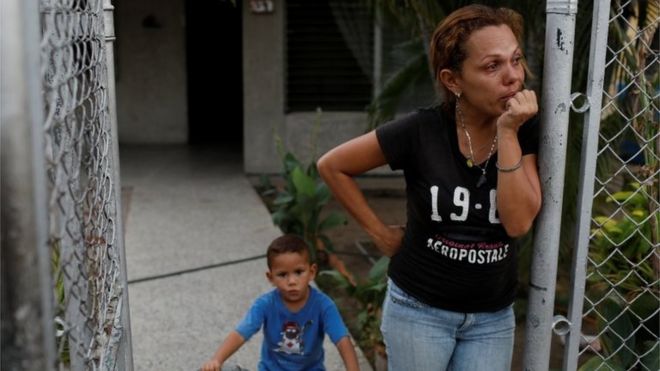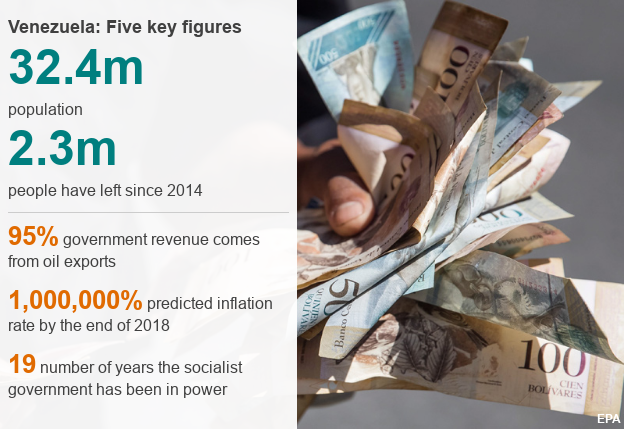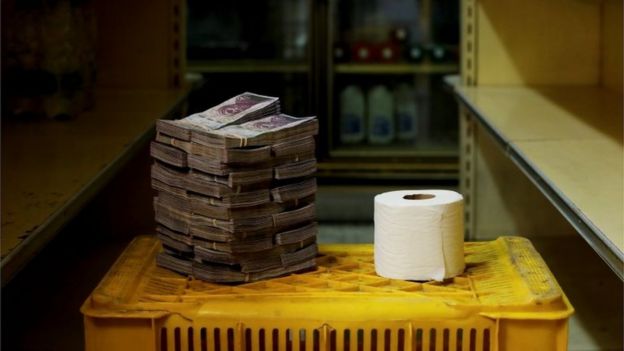 Image copyrightREUTERSImage captionMany Venezuelans see no option but to emigrate
Image copyrightREUTERSImage captionMany Venezuelans see no option but to emigrate Venezuela's economy is in freefall. Hyperinflation, power cuts, and food and medicine shortages are driving millions of Venezuelans out of the country. Many are blaming President Nicols Maduro and his government for the dire state the nation is in. Here, BBC News takes a closer look at how Venezuela's economy descended into its current crisis.
What's wrong with Venezuela?



Arguably the biggest problem facing Venezuelans in their day-to-day lives is hyperinflation. The annual inflation rate reached 83,000% in July, according to a recent study by the opposition-controlled National Assembly.
Prices have been doubling every 26 days on average. This has resulted in many Venezuelans struggling to afford basic items such as food and toiletries.
With small items like a cup of coffee costing a whopping 2.5m bolivars until recently, it also became increasingly difficult to pay for goods in cash.
Until the currency's redenomination on 20 August, Venezuelans needed 25 of their highest denomination notes - the 100,000 bolivar bill - to pay for their caffeine fix.
 Image copyrightREUTERSImage captionThe pile of bolivars needed to buy a roll of toilet paper is taller than the roll itself
Image copyrightREUTERSImage captionThe pile of bolivars needed to buy a roll of toilet paper is taller than the roll itself To avoid going shopping with rucksacks full of cash, Venezuelans increasingly started using electronic transfers for even the smallest transactions.
As the BBC's South American correspondent found in Caracas, waiters handed customers their bank details trusting that the latter would transfer them the tip electronically.
Media captionHow to get by in Venezuela, when